Comprehensive Guide to Garden Maintenance in Hayes
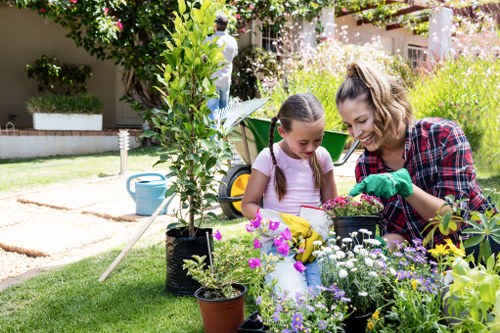
Introduction to Garden Maintenance
Maintaining a beautiful garden in Hayes requires dedication, knowledge, and the right techniques. Whether you're a seasoned gardener or a beginner, understanding the fundamentals of garden maintenance can transform your outdoor space into a lush, vibrant sanctuary.
Hayes, known for its unique climate and soil conditions, presents both opportunities and challenges for garden enthusiasts. By tailoring your maintenance strategies to the specific environment of Hayes, you can ensure a thriving garden all year round.
In this guide, we'll explore essential garden maintenance practices, seasonal tips, and expert advice to help you achieve and maintain a stunning garden in Hayes.
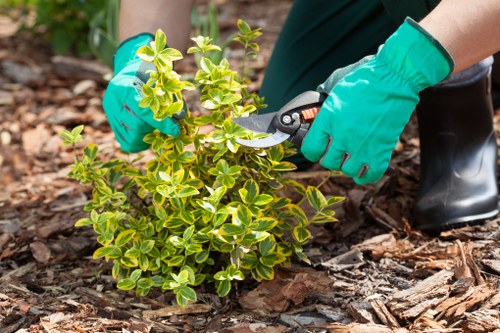
Understanding Your Garden's Needs
Soil Health and Preparation
Healthy soil is the foundation of a flourishing garden. In Hayes, the soil composition can vary, so it's crucial to test your soil's pH levels and nutrient content. Amending the soil with compost or organic matter can improve its structure, drainage, and fertility.
Regularly aerating the soil helps prevent compaction, allowing plant roots to access essential nutrients and water. Additionally, incorporating mulch can retain moisture, regulate soil temperature, and suppress weed growth.
By maintaining optimal soil health, your plants will be better equipped to withstand pests, diseases, and environmental stresses.
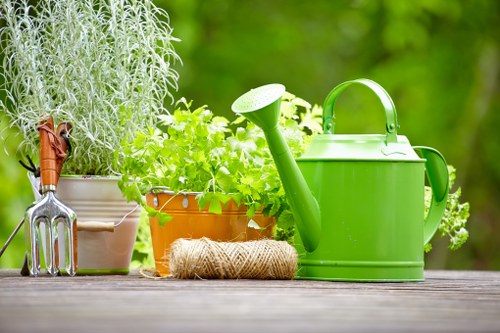
Seasonal Garden Maintenance
Spring Care
Spring is a critical time for garden maintenance in Hayes. As temperatures rise and days lengthen, it's essential to prepare your garden for the growing season. Start by clearing out any debris from the winter months, such as dead leaves and fallen branches.
Pruning shrubs and trees encourages healthy growth and shapes your plants for better aesthetics. Planting new flowers, vegetables, and herbs during spring sets the stage for a bountiful summer harvest.
Additionally, fertilizing your garden in early spring provides the necessary nutrients for plants to thrive throughout the year.
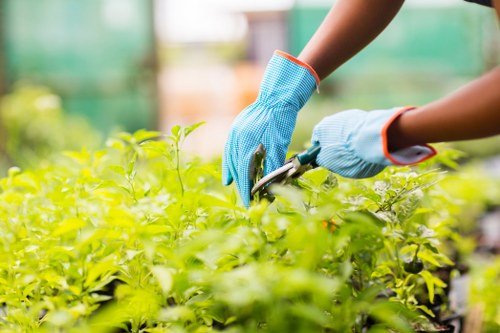
Regular Maintenance Tasks
Weeding and Mulching
Weeding is a constant battle in garden maintenance. Regular removal of weeds prevents them from competing with your plants for nutrients, water, and sunlight. Hand-pulling or using appropriate herbicides can effectively manage weed growth.
Mulching plays a vital role in suppressing weeds and conserving soil moisture. Organic mulches, such as bark or straw, add nutrients to the soil as they decompose, promoting healthy plant growth.
Maintaining a consistent mulching routine can significantly reduce the time and effort spent on weed control.
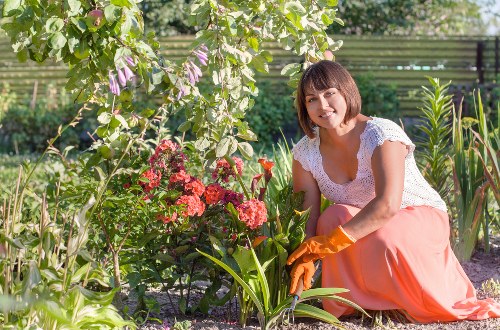
Watering Strategies
Efficient Irrigation Practices
Proper watering is essential for garden health, especially in Hayes, where weather patterns can be unpredictable. Implementing efficient irrigation systems, such as drip irrigation or soaker hoses, ensures that water is delivered directly to the plant roots, minimizing evaporation and wastage.
Watering early in the morning reduces water loss and allows plants to absorb moisture before the heat of the day. Monitoring soil moisture levels helps determine the appropriate watering schedule, preventing overwatering or underwatering.
By adopting smart irrigation practices, you can maintain a healthy garden while conserving water resources.
Pest and Disease Management
Integrated Pest Management (IPM)
Gardens in Hayes are susceptible to various pests and diseases that can hinder plant growth and aesthetics. Implementing an Integrated Pest Management (IPM) approach combines cultural, biological, and chemical methods to control pests effectively.
Regular monitoring of your garden helps identify early signs of pest infestations or disease outbreaks. Encouraging beneficial insects, such as ladybugs and predatory beetles, naturally controls pest populations.
If necessary, use environmentally friendly pesticides to manage severe infestations, ensuring minimal impact on beneficial organisms and the surrounding ecosystem.
Pruning and Trimming
Maintaining Plant Health
Pruning and trimming are essential for promoting healthy growth and maintaining the desired shape of your plants. Regularly removing dead or diseased branches prevents the spread of infections and improves airflow within the plant canopy.
Pruning also encourages the development of new shoots and flowers, enhancing the overall appearance of your garden. It's important to use the right tools and techniques to avoid damaging your plants.
Understanding the specific pruning needs of different plant species in Hayes ensures optimal growth and longevity.
Lawn Care
Maintaining a Lush Lawn
A healthy lawn is the centerpiece of any garden. In Hayes, maintaining a lush lawn involves regular mowing, aeration, and fertilization. Mowing at the correct height promotes dense grass growth and prevents weed establishment.
Aerating the lawn alleviates soil compaction, allowing roots to access nutrients and water more efficiently. Seasonal fertilization provides the necessary nutrients to keep the grass green and resilient against diseases.
Additionally, addressing lawn pests promptly ensures a pristine and vibrant lawn throughout the year.
Plant Selection and Care
Choosing the Right Plants for Hayes
Selecting plants that thrive in Hayes' climate and soil conditions is crucial for successful garden maintenance. Opt for native species or those well-suited to the local environment, as they require less maintenance and are more resistant to pests and diseases.
Diversifying your plant selection enhances biodiversity, attracting pollinators and beneficial insects that support garden health. Grouping plants with similar water and sunlight requirements simplifies care routines and ensures optimal growth.
Providing adequate support, such as staking or trellising, helps plants grow upright and prevents damage from strong winds or heavy blooms.
Mulching Techniques
Benefits of Mulching
Mulching is a fundamental aspect of garden maintenance that offers multiple benefits. It helps retain soil moisture, reducing the need for frequent watering. Mulch acts as a barrier against temperature extremes, keeping the soil cool during hot summer months and warm in the winter.
Organic mulches, such as compost, bark, or straw, decompose over time, enriching the soil with essential nutrients. This natural fertilization supports robust plant growth and improves soil structure.
Additionally, mulch suppresses weed growth, minimizing the time and effort required for garden upkeep. Regularly replenishing mulch ensures these benefits are consistently provided.
Composting and Soil Enrichment
Creating a Sustainable Garden
Composting transforms kitchen scraps and garden waste into nutrient-rich organic matter. In Hayes, setting up a compost bin or pile helps recycle organic materials, reducing waste and enhancing soil fertility.
Compost improves soil structure, increases its ability to retain moisture, and promotes beneficial microbial activity. Incorporating compost into your garden beds provides a steady supply of nutrients, reducing the need for chemical fertilizers.
Maintaining a balanced compost system involves regularly adding green (nitrogen-rich) and brown (carbon-rich) materials and ensuring proper moisture and aeration for efficient decomposition.
Irrigation Systems
Implementing Efficient Watering Solutions
Investing in efficient irrigation systems can significantly enhance garden maintenance in Hayes. Drip irrigation delivers water directly to the plant roots, minimizing evaporation and ensuring consistent moisture levels.
Automated irrigation controllers allow for precise scheduling, adapting watering times based on weather conditions and plant needs. This efficiency conserves water and reduces labor, making garden care more manageable.
Regularly inspecting and maintaining your irrigation system ensures optimal performance, preventing leaks and ensuring that all plants receive adequate hydration.
Garden Tools and Equipment
Essential Tools for Maintenance
Having the right garden tools is essential for effective maintenance. Basic tools include pruners, shears, spades, rakes, and hoes, each serving specific purposes in garden care.
Investing in high-quality, ergonomic tools reduces physical strain and enhances efficiency. Regularly cleaning and sharpening your tools prolongs their lifespan and ensures accurate performance.
Organizing your tools in a dedicated storage area keeps your workspace tidy and facilitates easy access during maintenance tasks.
Seasonal Planting Strategies
Maximizing Garden Productivity
Strategic planting throughout the seasons ensures continuous garden productivity in Hayes. Planting spring bloomers, summer vegetables, autumn foliage, and winter hardy plants creates a dynamic and vibrant garden year-round.
Understanding the frost dates and temperature fluctuations in Hayes helps plan your planting schedule effectively. Utilizing succession planting for vegetables extends your harvest period, maximizing crop yields.
Incorporating perennials alongside annuals reduces replanting efforts and maintains structural diversity in your garden landscape.
Organic Gardening Practices
Promoting Eco-Friendly Maintenance
Adopting organic gardening practices enhances the sustainability of your garden. Using natural fertilizers, such as compost and manure, reduces reliance on chemical inputs, promoting a healthier ecosystem.
Employing biological pest control methods, like introducing beneficial insects, minimizes the need for synthetic pesticides. Companionship planting, where certain plants support each other's growth, further strengthens your garden's resilience.
Organic mulching and soil enrichment techniques contribute to long-term soil health, ensuring your garden remains fertile and productive for years to come.
Landscape Design and Aesthetics
Creating an Attractive Garden Layout
Thoughtful landscape design enhances the visual appeal and functionality of your garden in Hayes. Designing with layers, textures, and colors creates depth and interest, making your garden a delightful space to enjoy.
Incorporating focal points, such as water features, sculptures, or unique plant arrangements, draws attention and adds character to your garden. Pathways and seating areas provide structure and invite relaxation and exploration.
Balancing hardscaping elements with soft planting ensures a harmonious and inviting garden environment.
Climate Considerations
Adapting to Hayes' Weather Patterns
Understanding Hayes' climate is essential for effective garden maintenance. The region experiences a mix of sunny days, rainfall, and occasional frost, influencing plant selection and care routines.
Choosing drought-tolerant plants can reduce water usage during dry spells, while frost-resistant varieties withstand colder temperatures, ensuring year-round garden health.
Implementing windbreaks and shade structures protects plants from harsh weather conditions, enhancing their resilience and longevity.
Hardscaping Elements
Enhancing Garden Structure
Incorporating hardscaping elements like patios, decks, fences, and pathways adds structure and functionality to your garden. These features provide spaces for outdoor activities and contribute to the overall aesthetic appeal.
Choosing materials that complement your garden's style ensures a cohesive and harmonious landscape design. Regular maintenance of hardscaping elements, such as cleaning and repairing, prolongs their lifespan and keeps your garden looking pristine.
Integrating hardscape and softscape elements creates a balanced and inviting outdoor environment.
Sustainable Gardening Practices
Promoting Environmental Stewardship
Embracing sustainable gardening practices benefits both your garden and the environment. Reducing chemical usage, conserving water, and promoting biodiversity contribute to a healthier ecosystem in Hayes.
Implementing rainwater harvesting systems captures and utilizes natural water sources, reducing reliance on municipal water supplies. Composting organic waste minimizes landfill contributions and enriches your garden soil.
Encouraging wildlife, such as birds and beneficial insects, supports natural pest control and fosters a balanced garden habitat.
Advanced Garden Maintenance Tips
Optimizing Growth and Health
For experienced gardeners in Hayes, advanced maintenance techniques can further enhance garden productivity and aesthetics. Techniques like grafting, propagation, and advanced pruning methods allow for greater plant diversity and resilience.
Implementing vertical gardening maximizes space utilization, especially in smaller gardens, and adds visual interest. Utilizing raised beds improves drainage and soil quality, promoting healthier plant growth.
Regularly monitoring and adjusting maintenance practices based on seasonal changes and plant performance ensures your garden remains vibrant and thriving.
Final Thoughts on Garden Maintenance in Hayes
Achieving a Flourishing Garden
Maintaining a garden in Hayes is a rewarding endeavor that combines artistry, science, and dedication. By understanding the unique environmental factors, implementing effective maintenance strategies, and embracing sustainable practices, you can cultivate a garden that is both beautiful and resilient.
Remember that garden maintenance is an ongoing process, requiring attention to detail and adaptability. Stay informed about the latest gardening trends and techniques to continuously enhance your outdoor space.
With the right approach and commitment, your garden in Hayes will flourish, providing a serene and vibrant environment for you to enjoy.
Contact us today to learn more about professional garden maintenance services in Hayes and take the first step towards your dream garden.